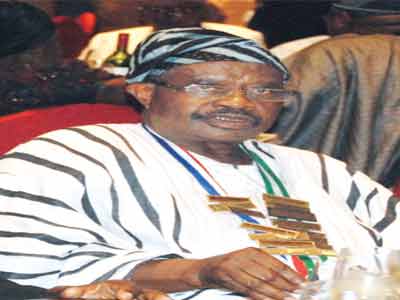
Well, it is quite cordial now. It was not as smooth as it is now during the last political administration. The U.S. government did not want to touch Nigeria because they thought Nigeria was bad news. Despite the fact that it maintained diplomatic relations with the country, the disposition to several economic issues were at a low abb. But the situation has changed for the better since the new government came in, the U.S. officials have been quite supportive and they are quite happy working with us presently. Our relationship is very cordial right now.
What is your chamber doing to improve the trade relationship between Nigeria and the U.S.?
Our chamber works within the economic environment. The trade relations between Nigeria and the U.S. did not go down because of any act of omission or commission by Nigeria. The fact is that we are a mono-product economy and U.S. was our biggest buyer of crude oil. But it was the same U.S. that developed shale oil production and became self-sufficient in producing crude oil to the extent that America has gone from being a huge importer of oil to becoming a net exporter of oil as it is now. So, our own role as a chamber is to promote non-oil export. In my acceptance speech, I made a particular point of about the Africa Growth and Opportunity Act (AGOA) that we will be taking it as a cardinal point in the affairs of the chamber to promote AGOA and also make it work.
The last statistics of 2013 showed that when South Africa did about $3.6 billion of export on the AGOA platform to the US, Nigeria did only $5 million. This is to say we have not been taking advantage of the Act. This shows you a huge opportunity and we intend to explore these opportunities to help Nigeria and also make the government see the chamber as a partner in its struggle to restructure the economy and grow Nigerian export to achieve economic growth and development.
AGOA has been extended by another 10 years. What is the chamber doing to ensure Nigeria taps into this ahead of other countries?
We are looking at ways to help Nigerian companies to take advantage of AGOA. First of all, there is very little knowledge of the Act among the business community. They know very little about it and we are starting with publicity; we are working with USAID NEXTT as a partner to promote AGOA and also get businesses informed to know how to key into AGOA. We are also planning educational programmes, workshops and outreaches to let them see that it is to their advantage and Nigerians are very good and we are sure that once we give them the chance, they will key into the Act.
What is your assessment of the local content culture considering efforts at developing the non-oil economy?
You have to realise that when you are talking about local content, the focus that Nigeria has been able to do in the past was in the oil industry. We had a local content department and that has worked very well for Nigeria. I am in the oil and gas industry; people like our company would have not been able to get to where we are presently if not for the local content policy of the government. The same thing needs to be done in other economic areas where we have been insisting on local content. As far as I am concerned, part of the local content is to insist that we should stop exporting all our products such as agricultural, products, mining and other products in raw form, but by processing and also doing value addition before we export them.
What do you want to be remembered for at the end of your tenure as President of the NACC?
I want to be remembered as the president responsible for reawakening the chamber and also galvanising it to accomplish its full potential as a bilateral chamber and also the oldest in Nigeria.



